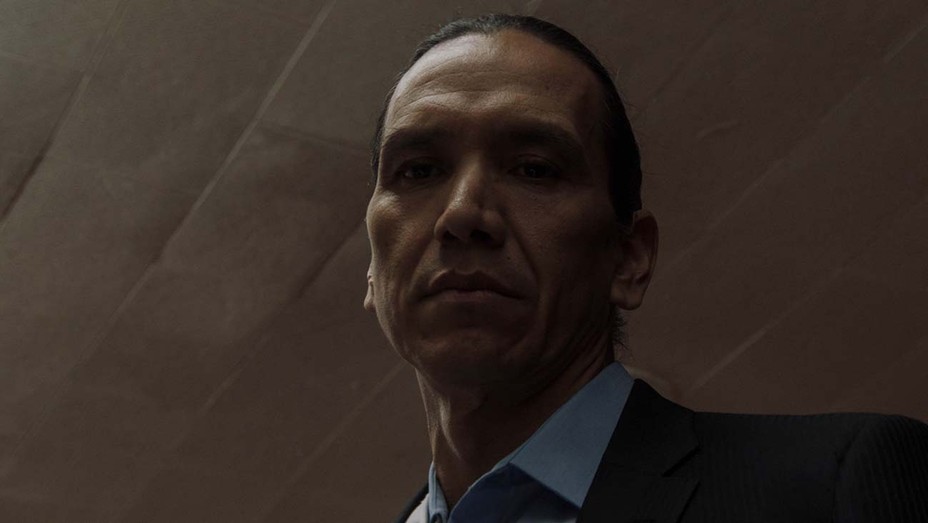When Europeans arrived on the shores of North America, they were surprised to discover myriad tribes of Indigenous Peoples, but their coming usually signalled death, in one way or another. Their customs and cultures were considered basic and barbaric by Christian invaders who simply couldn’t or wouldn’t understand their ways. In subsequent generations, Native American populations have gradually dwindled, with most now living in urban environments, away from ancestral land. This has caused a crisis of identity for many, as it does in Wild Indian.
Makwa (Phoenix Wilson) and Ted-O (Julian Gopal) are Anishinaabe boys and best friends who escape the hardships of their lives by playing in the nearby woods. Fast forward to the present day, Makwa is now Michael (Michael Greyeyes), a successful professional on the cusp of a promotion. Whilst ‘Theodore’ (Chaske Spencer) has spent the last decade in prison on a drugs charge. Upon release he is determined to put things right, especially a murder that happened when they were children.
Wild Indian is a fractured character study of a man who, despite years of trying, cannot escape his past. Lyle Mitchell Corbine Jr.’s film tackles the clash of culture between modern capitalism and Native heritage. Greyeyes’s Micahel is a suave and sinister presence, a thin veneer disguising a deep-seated hatred and almost uncontrollable violence. Wild Indian asks more questions than it answers, and whilst the structure is an impediment to its success, it announces a fascinating new voice in American cinema.
Wild Indian screened at Sundance Film Festival.














No Comment